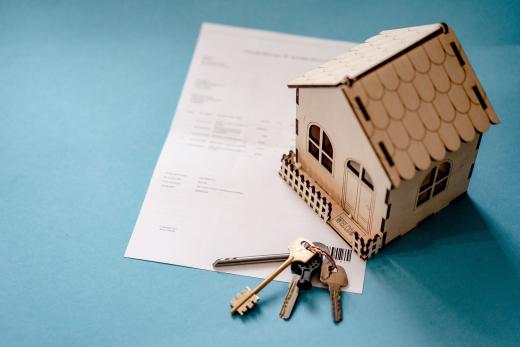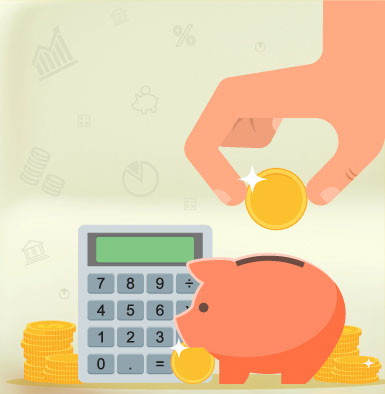What is Down Payment and How Does it Affect Your Mortgage Approval?
What is Down Payment and How Does it Affect Your Mortgage Approval?
- by PropHunt Admin
- On 17-05-2022
- at 11:14 AM

To rub shoulders with mortgage lenders and qualify for a mortgage you need to have a strong down payment on a house loan because lenders want to make sure you've got some cushion to reduce the potential risk of default.
The more money you have available for a down payment, the larger your investment is, and the less likely you will default on your mortgage repayment plans.
More importantly, a down payment on a house loan reduces the amount of debts you will owe and reduces the amount of interest you will pay. This might even reduce the duration of the loan payment and you could finish amortizing the loan within a short period of time.
The amount of down payment plays a crucial role in the lending environment. First, having a down payment proves to a lender that you are trustworthy as a borrower, and also able to manage your savings.
What is a down payment?
A down payment is the part of a home price that a mortgage lender does not finance and usually, it is paid upfront. A down payment in Ghana is typically between 0 and 20 percent, the remainder of which you cover through loan financing.
For instance, if you plan to buy a house for say Ghc500,000. If you were to put a down payment on a house loan of 10% of the sale price of the house. You will need about Ghc50,000 as a down payment and the remaining Ghc450,000 will be financed by a mortgage lender.
The size of a down payment will be determined by the type of mortgage loan you go in for. In view of this, your credit history and the large of your down payment will help you qualify for a homeownership loan.
How does down payment work?
Mortgage lenders always have the fear of the possibility of borrowers not being able to pay the principal and/or interest, as a result, they want the security of the borrower's income. In most cases, lenders will do a valuation of the property to come up with a percentage of the home value called Loan-To-Value ratio (LTV). The loan-to-value ratio is the maximum amount of the home value that the lender is willing to give to the borrower.
When the Loan-To-value is determined, it rests on the shoulder of the borrower to finance the remainder in down payment. Mortgage lenders will not predetermine how much down payment a borrower should have before a mortgage is approved without going through the underwriting.
Why are some mortgages have zero down payment?
Mortgages with smaller or zero down payment on a house loan are mostly government insured-mortgages. Sometimes if the government wants to assist people to own homes there is usually a policy where the government works with some selected mortgage lenders to reduce the burden of huge sums of down payment lenders requires from borrowers. With such a scheme lenders would no longer be worried about the risk of default.
With the government-insured mortgages, the government insures the lender against loss in the event of default and foreclosure just to encourage homeownership in the country. Because of this, lenders often allow larger loan-to-value (LTV) ratios, enable larger fractions of the underlying asset value and in most cases 100% funding.
Why mortgage lenders require a down payment
A mortgage lender wants some level of confidence that a homeowner will make their mortgage payments and not default on their mortgage repayments scheduled. If a homeowner has money down then the risk is lower to the lender. Without the owner making some level of financial commitment, a mortgage lender will not be willing to approve the loan.
The type of financing impacts your down payment
The type of loan you request is the ultimate first indicator of how large, or small, your down payment needs to be. In Ghana, conventional loans come with a smaller down payment and this often requires the backing of an insurance policy. This is done by enhancing the Loan-To-Value ratio up to 95% of the house value and not more than 80% without insurance.
How Down Payment On A House Works
The size of your down payment will decide how much you'll pay in principal and interest. So saving for a down payment provides good practice for homeownership. The more you put down, the less obligation you owe the mortgage lender. The more you put down, the better the loan-to-value ratio. If you put enough down payment, you'll avoid the extra cost of mortgage insurance, which is added to your monthly payment on conventional loans.
Because the loan to value ratio is lower, your future borrowing becomes easier or provides you with better rates on loans. You'll look more attractive to future lenders and you may end up paying back your loan more quickly than scheduled.

 French
French




